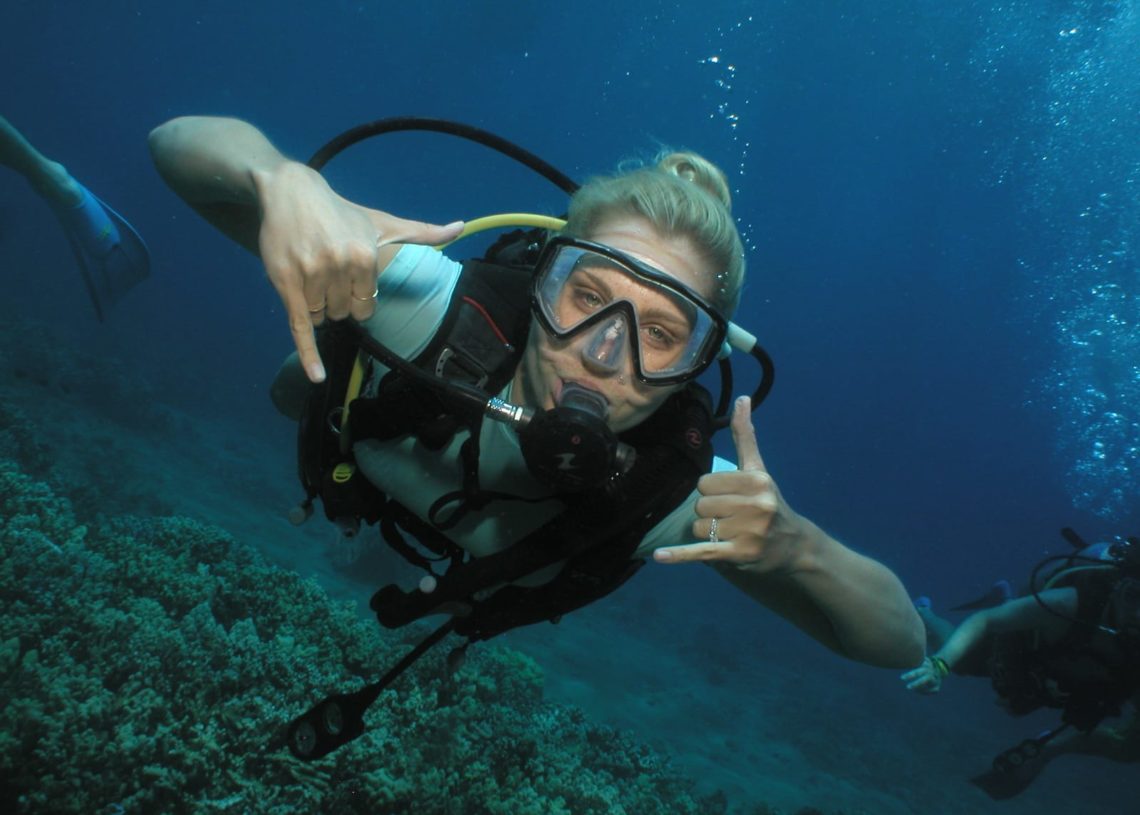Scuba diving is a thrilling hobby that lets you discover the underwater world’s magnificence. It is mainly performed for the fascination of the remote aquatic environment. For people of all ages, scuba diving is a popular sport. You’ve probably heard about folks who practice yoga or Zumba to reduce stress. A popular meditation activity for the general public to minimize stress is getting a diving certification and scuba diving.
Nothing compares to floating over the water while seeing marine life, exploring underwater caverns and breathtaking reefs, or even diving beneath sunken ships. We will cover everything you need to know about scuba diving in this guide, so keep reading:
What are the Best Locations for Scuba Diving?
The undersea environment is stunning, and many people choose to go scuba diving in Asia, the Red Sea, or the Great Barrier Reef, among the world’s top scuba diving destinations. People find themselves coming time and time again to these sites because the variety of hues and marine life is so breathtaking. Some popular locations for scuba diving are listed below:
- Navy Pier, Western Australia.
- Great Blue Hole, Belize.
- Shark and Yolanda Reef, Egyptian Red Sea.
- The Yongala, Australia.
- Barracuda Point, Sipadan Island, Malaysia.
- Richelieu Rock, Thailand.
- Maui Island, Hawaii
Who can Scuba Dive?
You can become a diver at any age. Scuba diving has just one age restriction. There is no maximum age to begin diving; you may start as young as 8.
Contrary to popular belief, scuba diving involves limited physical exertion. But there are several health-related prerequisites for scuba diving. You must complete a medical health questionnaire before becoming a scuba diver. It aims to determine whether your health can survive the pressure of the water.
Physical concerns that might prevent you from diving include:
- A collapsed lung.
- Severe allergies or asthma.
- Heart issues.
- Illnesses that prevent you from equalizing or impair your hearing.
A doctor specializing in hyperbaric medicine can assist you if you have any questions.
Is Scuba Diving Safe?
Yes, as long as you follow some simple guidelines, remain alert, and avoid taking unnecessary risks, scuba diving is safe. According to statistics, sports like fishing, golf, skiing, and even bowling are more dangerous than scuba diving. It’s similar to crossing the street: if you look both ways, assess the direction of approaching traffic, and keep your eyes open, you should have no trouble getting to the other side. On the other hand, the outcome is unlikely to be favorable if you walk across a busy road while wearing headphones and having your face buried in your smartphone.
Over the past 20 years, the number of licensed divers has increased. As compared to this, the proportion of deaths among divers has declined. Every agency’s training program begins with a lesson on the rudimentary safety guidelines for diving:
- Never hold your breath.
- Don’t push yourself above your training limit.
- Don’t disturb the wildlife.
How is Scuba Diving Done?
Scuba equipment, which comprises a diving tank, regulator, buoyancy control tool, and other attachments, is used for scuba diving. The tank delivers air for breathing underwater, and the diver wears the apparatus on their back. Divers need a mask to see underwater and a drysuit or wetsuit to defend against the chilly water.
What Should you Know Before you Go Scuba Diving?
You must have the appropriate instruction and certifications before scuba diving is essential. It includes enrolling in a scuba diving school, which will impart the necessary knowledge and skills to dive safely. Before diving, it’s crucial to be familiar with the dive site’s conditions and to inspect and maintain your equipment constantly.
What Can You Expect From Scuba Diving Lessons?
Lessons for scuba diving are relatively straightforward and basic. After finishing the classes, which are frequently provided at the dive shop, you can obtain a beginner’s recreational diving certification in three to four days. If you are traveling, you can finish your theoretical training and exam online or through a local dive shop, then complete your pool training and open water dives at your location. This process is known as a “referral.”
A scuba diving certification, however, may take four to six months if you enroll in more challenging courses. It takes longer to become certified since the advanced skills take more work.
8 Essential Safety Tips for Scuba Diving
Scuba diving can be a dangerous activity if proper precautions are not taken. It’s essential to use a dive computer and stay within your limits. According to In2Scuba Diving director TY Burnett, a small Maui Scuba Diving shop owner teaching Scuba diving to beginners, here are a few tips you need to follow:
- Always dive with a partner.
- You should never dive if you are congested in your ears or nose or have a cold.
- Always organize your dive and stick to your strategy.
- Check your diving equipment to ensure everything is in working order. Utilize equipment that is suitable for the dive you are planning.
- Never use drugs or drink alcohol before going diving.
- Find out from your doctor which medications you can safely use while diving.
- Ask your doctor about the potential health effects of diving. If you have specific medical conditions, it can be risky.
- Learn about the risks that exist in the undersea world. Find out which fish, coral, and other dangers you should stay away from to avoid getting hurt. Be mindful of the local currents and tides.







